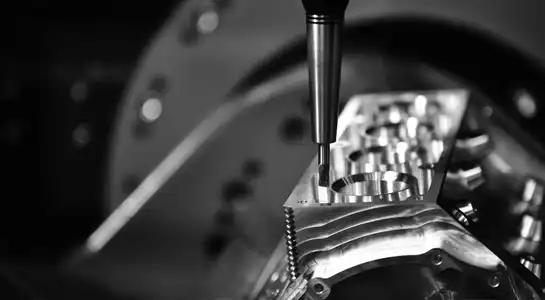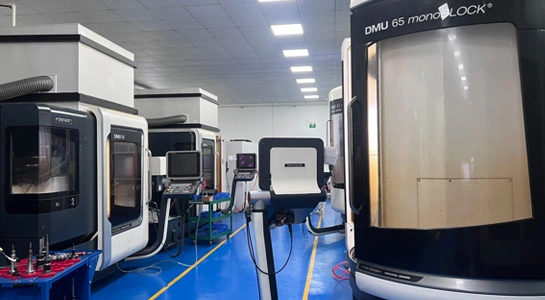Affordable CNC Milling Solutions for Small Businesses
In today's competitive manufacturing landscape, small businesses are constantly seeking ways to enhance their production capabilities without breaking the bank. CNC milling offers a perfect solution, combining precision, efficiency, and cost-effectiveness. This advanced technology allows small businesses to produce high-quality parts and components with remarkable accuracy, rivaling larger manufacturers. By leveraging affordable CNC milling solutions, small businesses can streamline their operations, reduce labor costs, and boost overall productivity. From rapid prototyping to small-batch production, CNC milling empowers entrepreneurs to bring their innovative ideas to life while maintaining tight budgets and meeting demanding deadlines.
Understanding CNC Milling Technology
The Basics of CNC Milling
CNC milling is a subtractive manufacturing process that uses computer-controlled cutting tools to remove material from a workpiece. This versatile technology can handle a wide range of materials, including metals, plastics, and composites. The process begins with a 3D digital model, which is then translated into a set of instructions for the CNC machine. As the cutting tool moves along multiple axes, it precisely shapes the material according to the programmed specifications.
Advantages of CNC Milling for Small Businesses
For small businesses, CNC milling offers numerous benefits. It allows for the production of complex geometries that would be difficult or impossible to achieve with manual machining. The technology also ensures consistent quality across multiple parts, reducing waste and rework. Additionally, CNC milling can operate with minimal human intervention, freeing up staff to focus on other critical tasks.

Types of CNC Milling Machines
There are several types of CNC milling machines available, each suited to different applications. Vertical milling machines are ideal for general-purpose work, while horizontal mills excel at heavy-duty cutting. Multi-axis machines offer greater flexibility and can produce more complex parts. Small businesses should carefully consider their specific needs when selecting a CNC milling solution to ensure they invest in the most appropriate technology for their operations.
Cost-Effective CNC Milling Strategies for Small Businesses
Optimizing Material Usage
One of the most effective ways for small businesses to reduce CNC milling costs is through strategic material optimization. This process includes meticulous planning of part layouts on raw stock to minimize off-cuts, employing advanced computer-aided manufacturing (CAM) software to simulate and select the most efficient cutting paths, and establishing systems to recycle or repurpose scrap material. By prioritizing material efficiency, businesses not only decrease waste but also directly reduce expenses related to raw material purchases, contributing to both economic and environmental sustainability.
Leveraging Cloud-Based CAM Software
Cloud-based CAM software provides small manufacturers access to high-end toolpath optimization for CNC milling and simulation tools without large upfront investments. These platforms often incorporate automated feature recognition, real-time collision avoidance, and seamless updates, helping to shorten programming time and prevent machining errors. With a subscription model, small businesses can leverage enterprise-grade technology at a manageable cost, improving machining efficiency and accuracy while reducing dependency on physical infrastructure and specialized IT support.

Implementing Lights-Out Manufacturing
Lights-out manufacturing enables small businesses to operate CNC machines autonomously during unattended shifts, typically overnight or during weekends. This practice significantly increases machine utilization rates and production output without additional labor expenses. Successful implementation requires reliable machinery, automated tool monitoring, and remote error detection systems to ensure operational continuity and part quality. When properly executed, this approach notably lowers cost per part and enhances overall production capacity.
Choosing the Right CNC Milling Solution for Your Small Business
Assessing Your Production Needs
Before investing in a CNC milling solution, small businesses should conduct a thorough assessment of their production needs. Consider factors such as the types of materials you'll be working with, the complexity of the parts you'll be producing, and your expected production volumes. This evaluation will help you determine the most suitable machine configuration and capabilities for your specific requirements.
Evaluating Total Cost of Ownership
When comparing CNC milling solutions, it's crucial to look beyond the initial purchase price and consider the total cost of ownership. This includes factors such as maintenance requirements, energy consumption, tooling costs, and potential upgrades. Some machines may have a higher upfront cost but offer lower operating expenses over time, making them more economical in the long run for small businesses.

Exploring Financing Options
For many small businesses, the initial investment in CNC milling equipment can be substantial. However, there are various financing options available that can make these solutions more accessible. Leasing arrangements, equipment financing loans, and even government grants for small manufacturers can help spread the cost over time and preserve working capital. Exploring these options can make advanced CNC milling technology more attainable for small businesses with limited resources.
Conclusion
Affordable CNC milling solutions have revolutionized the manufacturing landscape for small businesses, offering unprecedented precision, efficiency, and flexibility. By carefully selecting the right equipment, optimizing processes, and leveraging innovative software solutions, small businesses can compete effectively in today's market. As technology continues to advance, the accessibility of CNC milling will only increase, further empowering small manufacturers to bring their ideas to life and drive innovation across industries.
FAQs
How long does it take to learn CNC milling?
Basic proficiency can be achieved in a few weeks, but mastering CNC milling typically takes several months to a year of hands-on experience.
Can CNC milling be used for prototyping?
Yes, CNC milling is excellent for prototyping, allowing for quick and accurate production of functional parts in various materials.
Affordable CNC Milling Solutions for Small Businesses | BOEN
At BOEN, we specialize in providing high-quality, affordable CNC milling solutions tailored for small businesses. Our advanced 3-, 4-, and 5-axis CNC machining centers, combined with our expertise in rapid prototyping and low-volume production, enable us to deliver precise, cost-effective parts across various industries. From automotive to aerospace, we offer comprehensive solutions to support your product development needs. Contact us at contact@boenrapid.com to explore how our CNC milling services can boost your small business's manufacturing capabilities.
References
1. Smith, J. (2022). "CNC Milling: A Game-Changer for Small Manufacturers". Journal of Advanced Manufacturing Technologies.
2. Brown, A. (2021). "Cost-Effective Strategies in CNC Machining for SMEs". Small Business Manufacturing Quarterly.
3. Johnson, R. et al. (2023). "The Impact of Cloud-Based CAM on Small Business Productivity". International Journal of Industrial Engineering.
4. Lee, S. (2022). "Lights-Out Manufacturing: Opportunities and Challenges for SMEs". Journal of Manufacturing Systems.
5. Williams, T. (2023). "Financing Options for CNC Equipment in Small Businesses". Small Business Economics Review.
6. Garcia, M. (2021). "Material Optimization Techniques in CNC Milling". Journal of Sustainable Manufacturing.

How Can We Help?

Your Trusted Partner in Rapid Manufacturing.



